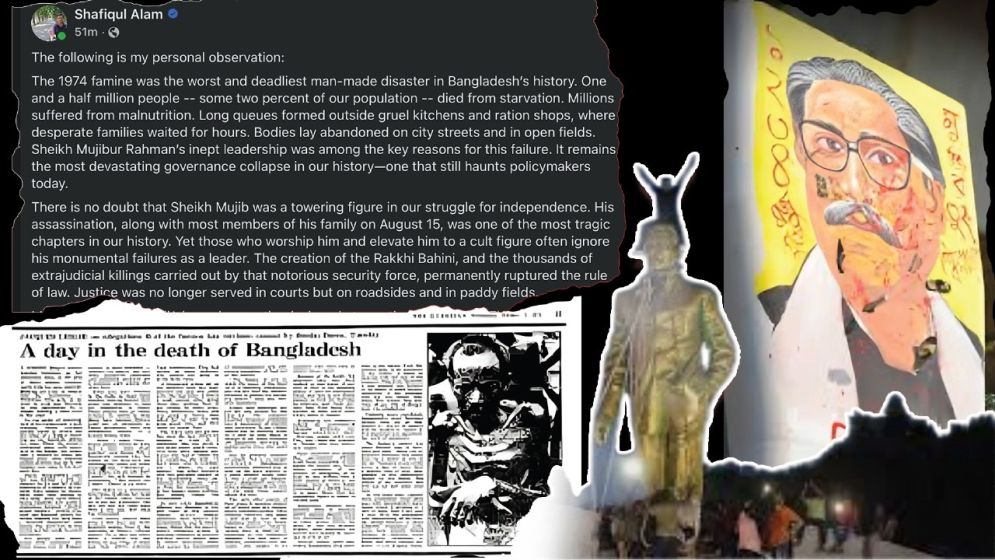Press Secretary Shafiqul Alam calls for honest reassessment of Mujib era

Bangladesh’s chief adviser’s press secretary, Shafiqul Alam, on Thursday stressed on the need for an objective and unvarnished account of the country’s early leadership, including the tumultuous years under Sheikh Mujibur Rahman.
In his verified facebook page, Shafiqul referred to the 1974 famine as “the worst man-made disaster in Bangladesh’s history,” noting that it claimed an estimated 1.5 million lives, roughly two percent of the population, and left millions more suffering from malnutrition.
He pointed to long queues at ration shops, widespread hunger, and bodies lying unclaimed on streets as stark reminders of governance failures during that period.
While acknowledging Mujib’s towering role in the independence struggle and describing his assassination on August 15, 1975, as “one of the most tragic chapters in our national story,” Shafiqul also said that the tendency to elevate him to an untouchable figure has obscured serious policy and governance lapses.
He cited the creation of the Rakkhi Bahini and its record of extrajudicial killings as a key blow to the rule of law.
Historians and analysts have long noted that much of the literature on Mujib is shaped by partisanship, with few works willing to address contentious issues such as the killings of Urdu-speaking Biharis between late 1970 and early 1972, an episode on which Mujib and the Awami League leadership remained largely silent.
Allegations of Awami League activists’ involvement in that violence have never been fully investigated.
Shafiqul said this selective historical memory was compounded by the revival of what critics call the “Mujib cult” in subsequent decades, with successive governments either enabling or failing to confront it.
The BNP governments of the 1990s and early 2000s, he added, missed opportunities to promote a more balanced national narrative.
He stressed that the political changes of 2024 should mark a turning point: “We must honour Sheikh Mujibur Rahman’s historic contributions, but we also have to examine honestly the leader he became between 1972 and 1975.”
“A new Bangladesh must be built on truth, not on selective remembrance.”
Shafiqul concluded that Generation Z, now at the forefront of the country’s political transformation, “owes future generations an honest, unflinching history–one that tells the whole story, not just the comfortable parts.”
—

